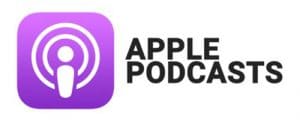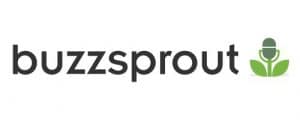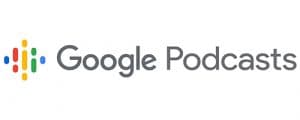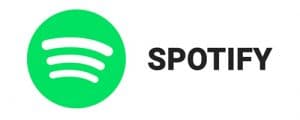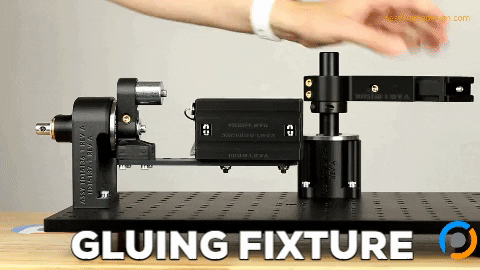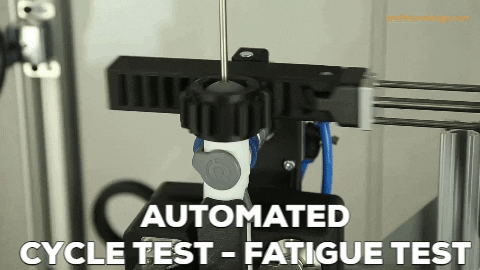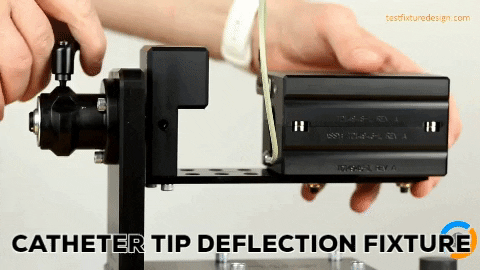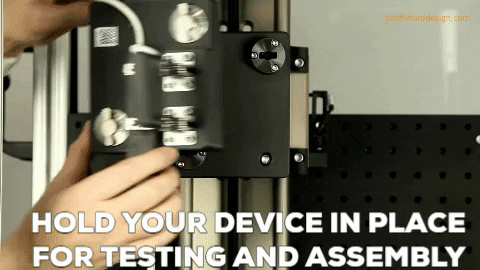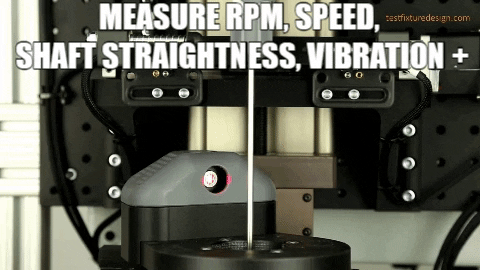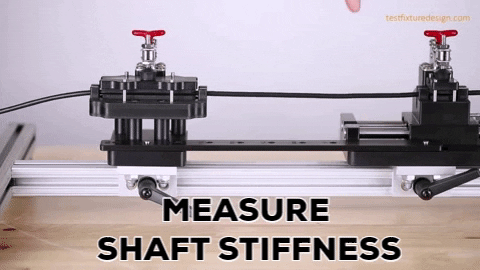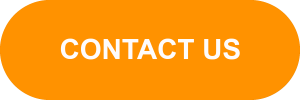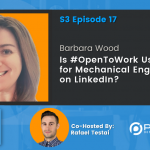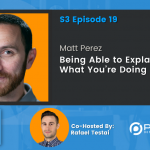Steven MacGregor | Expert in Workplace Health + Author of 6 Books
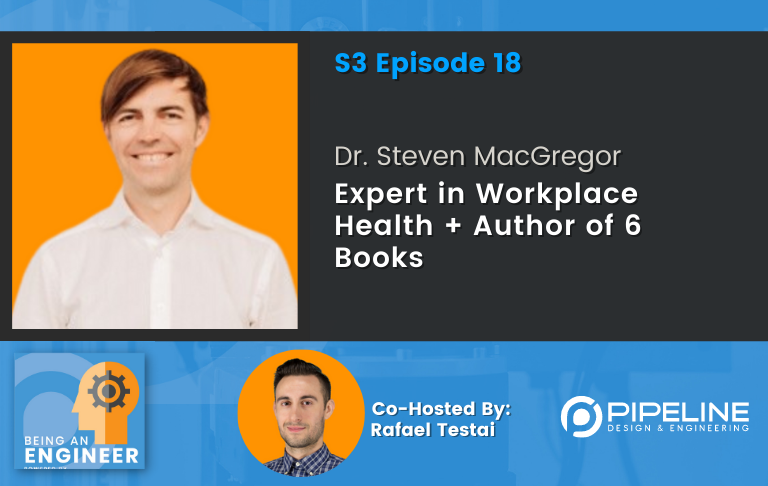
Who is Steven MacGregor?
Steven MacGregor is a global expert in workplace health, wellbeing, and performance with PhD and Master’s degrees in design thinking and virtual teams. He is the founder of The Leadership Academy of Barcelona with clients including Salesforce, McKinsey, and Uber. Additionally, he is the author or lead co-author of 6 books in the past 12 years, notably Chief Wellbeing Officer and Sustaining Executive Performance.
Steven is also a keynote speaker and guest professor with experience in research and teaching at Stanford, Carnegie Mellon, IE, IMD, IESE, CEIBS, and Pompeu Fabra.
He has also been a former national duathlon champion and has trained with Tour de France riders, Ironman champions, and Olympic track athletes. Steven is currently racing for FC Barcelona.
The Daily Reset: 366 Nudges to Move Your Life Forward
https://www.amazon.com/Daily-Reset-Nudges-Move-Forward-ebook/dp/B09GVN1N6C
EXPAND TO VIEW EPISODE TRANSCRIPTION
SUMMARY KEYWORDS
people, engineer, book, barcelona, life, spanish, steven, key, couple, day, called, problems, daily, stoic, podcast, workplace, design, important, pain points, health
SPEAKERS
Steven MacGregor, Presenter, Aaron Moncur, Rafael Testai
Presenter 00:00
Hi, everyone, we’ve set up this being an engineer podcast as an industry knowledge repository, if you will, we hope it’ll be a tool where engineers can learn about and connect with other companies, technologies, people, resources and opportunities. So make some connections and enjoy the show.
Steven MacGregor 00:18
So rather than just rushing towards, Hey, I am an engineer of whatever type, you could say, Hey, I love solving problems. I love helping people I love impacting whatever sustainable development I love, looking at problems and cities or whatever it is, and I think we define ourselves in a different way.
Rafael Testai 00:50
Hello, everyone, welcome to the being an engineer podcast today we have a very special guest, Steven McGregor. Steven is a global expert in workplace health, wellbeing and performance with a PhD and master’s degree in design thinking and virtual teams. Founder of the Leadership Academy of Barcelona, where clients including Salesforce McKenzie and Uber, author or lead co author of six books in the past 12 years, notably chief wellbeing officer and sustaining sustaining executive performance. He’s a frequent keynote speaker and guest professor will experience in research and teaching at none other than Stanford, Carnegie Mellon, i e, I m the i e. S, E, and many other procedures universities, trained with Olympic athletes Tour de France riders and Ironman champions, international level do athlete and former national champion currently racing for FC Barcelona. Steven, welcome to the podcast.
Steven MacGregor 01:58
Hi, Raf pleasure to talk to you today. Thanks for the invitation.
Rafael Testai 02:02
Of course. So are you talking to us from Barcelona at the moment?
Steven MacGregor 02:05
Yes, early evening here and yeah, in my home office in Barcelona, but just back from vacation just getting into an easy week again.
Rafael Testai 02:14
Fantastic, and we haven’t spoken Spanish much on the podcast, but ask you before we got started that you told me that you were in Barcelona for the last 20 years. And I would like for our audience to hear your beautiful Spanish so let Ken if I may. I’m gonna ask you a question in Spanish. Go McTighe Lima Shan Barcelona nectar momento, how’s the climate or weather in Barcelona?
Steven MacGregor 02:37
See no I study and study and gone see by Sandy Salgado, he Mira Sonya school says yes, I was RAF que mi import el tiempo, this was the so freer than the zonules, Anastasia e por esto que viva and Barcelona.
Rafael Testai 02:52
That is fantastic Spanish. For anyone that speaks English, I’m telling you, like, you can tell the difference. Like He really seems like a person from Spain, he’s got the accent down. So for anyone I know, this is not about engineering yet. But for anyone that wants to speak Spanish as a second language. This is Steven is proof, you can do it once. Before we dive into the exact technical things, any advice that you may have for anyone that wants to pick up Spanish as a second language, what’s the key,
Steven MacGregor 03:25
I think is just immersing yourself in that environment. You know, because if I think back to when I started learning a language University, I was actually studying French for a couple of years. But I never spent any significant amount of time in France. So it never got beyond the very basic level. Spanish I never studied, you know, via books or via classes. I just simply came here to live. And I only had one or two words. And so you just immerse yourself in the environment every single day. And I think the second thing is that you’re not afraid to make mistakes. So maybe this comes from my engineering background. It’s something that maybe we can talk about, right, the importance of failure, the importance of experimentation and iteration, especially important from my own engineering background, which was in design thinking, but you have to just jump in, don’t be afraid of making mistakes. And that’s the way that you learn. And that’s the way that I accelerated my my language learning in Spanish as well.
Rafael Testai 04:22
Absolutely. I came to the United States when I was 13. So English was my second language. Now I’m like, 5050, I don’t know, which was my main language anymore, which may be a good thing. But I agree with that. Their willingness to make mistakes and not be embarrassed about our mistakes. And I think a big aspect of that I can speak to this as having a team of friends or coworkers, colleagues that can correct us when we make mistakes, because I’m always willing to learn and I want to learn from my mistakes. That’s what helped me. Absolutely. All right. Well, let’s give the context of I read your bio, and this is i out of the ordinary of what the usual guests that we have on the on the podcast, and I did on purpose, usually we have maybe a mechanical engineer, someone that’s developed medical devices. And that’s the field that I want to go into and develop my career into. But your bio is different. Could you give us maybe a one minute description of what it is that you do and what it is that you’re most proud of that you do?
Steven MacGregor 05:24
Sure. So I’ve been working Raf 20 years in, predominately in the workplace, but generally the field of health and well being and just making sure that people who who work for a living, they can actually still strive for high performance, getting the results, but they don’t compromise their health and well being in the attempt. And this is health and well being in many different dimensions. It can be physical, it can be mental, it can be emotional, can be spiritual. And of course, with the whole shield, the experience that we’ve had of the pandemic, in the last couple of years, mental health is of particular importance. So that’s been my focus. So I’m not a practicing engineer. But I bring a very engineering centric view of the world to my work. And I think like an engineer, and that has given me so much value in trying to get purchase on this field, which is very difficult. You know, health and well being in the workplace in particular, is a very tricky proposition. But I’ve been very proud over the years of having changed, if I can put it on a very basic level changed a lot of mines, because you start talking about the importance of health and well being to people in business, and especially high achievers. And they think that that’s not important, I’m not going to pay any attention to these things, I want to just get ahead in my career, but then you your message, and you package the things in such a way that they change their minds, and it makes them healthier, and happier, and also higher performing.
Rafael Testai 06:54
Okay, two follow up questions. What do you mean by think like an engineer.
Steven MacGregor 06:59
So I think I take a very systematic view of the world. And I look at, you know, problems, and I break them down into their constituent parts. And I try and tackle them. So it’s a very human centric problem that I’m dealing with, is looking at the Daily lived experience of people in business, and very much drawing on my design, thinking expertise. So my first degree was a master’s in product design, engineering. And then the PhD was an engineering design management. And I studied at the Institute of Design and Stanford. And so you look at the kind of experience, journey, let’s see of a target in many ways and innovation projects, and you try and uncover pain points for these people. So for me, rather than looking at an innovation project, or marketing campaign, which is often the focus of design thinking, you look at people in business, and you think, okay, they’re working long hours, they are trying to get results, maybe they have too much stress in their lives. And you identify pain points, and you try and identify parts in that experience every day that you can redesign. So essentially, it’s about looking at that experience, you’re breaking down the problem in a very human centric way, you’re reengineering their lives, or you’re redesigning their lives. And that for me, it came from my design thinking background, and it came from thinking about life and thinking about problems in the world around us as an engineer.
Rafael Testai 08:31
Wonderful. Yeah, that’s what I suspect the systematic approach to break down problems. So let’s dive into that. You said, You’re a global expert in workplace health, wellbeing and performance. Maybe everyone, most of the people listening to this podcast, we work for a living there also students listening. But for those of us that work for a living that go to the office, what specific tips can you give us so we have healthier lives?
Steven MacGregor 08:59
So this could mean different things to different people rough and, you know, often depends on again, what are these pain points? So does someone feel that they are overwhelmed with with work? Is it stress? Is it anxiety, you know, is a sense of isolation. And so depending on what those pain points are, then we actually we normally work with people to try and, you know, change some of that daily reality. And it can often be the simple things. So it could be that a lot of negative emotions, for example, come from living a very highly sedentary life day in day out. So a lot of what we do with people we say, Look, don’t forget about movement in your normal day. So rather than just sitting at your desk all day, and being confronted with overwhelming amount of emails, you know, go for a walk around the office, have a conversation with someone rather than picking up the phone or sending an email when we move on. We move blood around the body, it gives us energy to our brains, we’re more inspired, we get more creativity. And Stanford research backs that up actually, when you walk, you improve creativity by 60% on a qualitative and a quantitative level. So combating accidental life could be one thing, taking more frequent breaks could be another, you know, the power of mindfulness, maybe reaching out and developing friendships in the workplace. So there’s a whole many different things. And again, it comes from that systematic approach that I’ve taken to human health, well being and performance, that we’re all different. And of course, our life changes in the context changes so that that need can be different from one day to the next. But the key thing and just to finish on this, is that it doesn’t have to be a huge thing, right to if anyone’s got any issues in terms of their own mental health, or their performance is often a tiny change, that makes a huge difference. And we all have something called a keystone habit. So it’s having that explorative approach, trying to find out what really does work for you, and just putting into action and see what works. And if it doesn’t work, try something else.
Rafael Testai 11:06
To my understand the first step in solving a problem is identifying the problem. Would you agree with that?
Steven MacGregor 11:12
Yeah, question is more important than the answer.
Rafael Testai 11:15
Okay, so that leads me to my question, which is, how can one self identify what their pain points are?
Steven MacGregor 11:23
So you got a couple of options. I mean, we work in a coaching capacity with our clients. And that’s one thing, you know, the, regardless of what level you’re I think, many organizations, now we’re democratizing coaching isn’t just for senior staff, it is for everyone in an organization, you get so many new startups that are coming on the scene that actually have these one to one, coaching services at a very accessible price point. So anyone can reach out these days and have a coach to help them along. But the other one is just thinking about having that dialogue with yourself, and giving yourself space. Because we’re all so busy, that we don’t often stop and think, How am I feeling? How am I performing? What do I need. So it’s just taking that pause. And a couple of things that we read, we recommend normally, is to think about even journaling, right. So even if you think of an engineer, and maybe you have an engineering logbook, or you have an engineering, you know, some some means of recording the work that you do, you know, having a kind of personal journal, whereby you take maybe a pause at the end of the day, and you note down how your day went, that gives you that space. And it allows you to identify some of these pain points. And so what we did, you’ve mentioned a couple of my books in the in the introduction, my most recent book, which is just out called the daily reset, is about facilitating these day to day changes. But it’s not just a book, it’s not just giving people information. It’s a journal so that they can engage with that content, and try and find out these questions for themselves. And the power is in that approach, the power is in that curiosity that we all need to have on a daily basis.
Rafael Testai 13:10
Whereas you’re saying, How does one, I mean, see, the thing is, like, we’re all so busy. And people have a list of books that they want to read, if if they’re like me, I have a list of 100 books I want to get to and I never have the time, once I finished my day, maybe I’ll read like some pages, but then adding another book for people to read. If you want to go in depth, that’s something we can suggest. But if they don’t have the time to read a book yet, if you can give him maybe one or two golden nuggets, take home points. How does one go about journaling properly?
Steven MacGregor 13:43
So first of all, in the book, I agree with you, I don’t read I don’t find I don’t feel I have the time to read the thing without overflowing. This new book of mine isn’t a normal book graph. It’s a page of the reflection. So I was inspired by something called the daily stoic, which has been out for a couple of years from Brian Holliday and Stephen Hanselman. And that got me through the pandemic. And that is 366 najis. So basically, every day, you’ve got maybe 150 or 200 words to read, I would wake up, I’d make coffee, I’d read the day’s reflection, and it gave me enough purchase to get going and mobilize me to action. So I copied that format. So in the daily reset that is 12 themes of wellbeing, movement, nutrition, purpose, ways of working leadership, and many more. And basically you spend two minutes a day reading and that’s all you need to do. So it’s a low bar. You know, we are we are we are overwhelmed by information these days from so many different factors that I felt this was the way that we could mobilize change. You’re not expected to read in depth of book at one sitting, you just spend two to three minutes a day, and that is enough to mobilize you to change, moreover, than that which has been working very well, since it’s been released in the last month is that you just need the space. That’s all you need, the magic happens. You need tools. And as engineers, we recognize the importance of tools, the tools that you need here, you need a good pen. That’s what I believe. And I’ve always been very proud of my pencils. When I was drafting and engineering and sketching in design, and a good quality of pens, or, you know, it’s the simple stuff, a good quality pencil or preferably pen, and a good notebook, write a clean notebook, something that you can start afresh with, that’s going to be your new reality. And all you need to do is give yourself a space and a time in the day when you’ve got some headspace where you’re not going to be distracted, or you’re not going to be overwhelmed with push notifications and other things and other people asking for you identify that time only needs to be five minutes. You have that book, you have that pen, and the magic happens. And that’s all you need.
Rafael Testai 16:02
Okay, so two things to recap on, what’s the name of your book that goes over this daily page? Exercise?
Steven MacGregor 16:09
Sure. It’s called the daily reset. 366 nudges to move your life forward.
Rafael Testai 16:15
Not even 66 nudges. Okay. Perfect. And it was inspired by something called the daily stoic, correct. That’s right, Ralph. Yeah. Okay, I want to make sure it’s really interesting when an author writes a book, where what was the inspiration? So thank you for sharing that with us. And this daily stoic, I’m on the website right now. Is it by any chance? I like? I’m Catholic, I like I think religion is very important. Is it any religion based or no?
Steven MacGregor 16:48
No, you know, I think it’s just stoic philosophy. A lot of it came from the times of ancient Rome. So Marcus Aurelius, former Roman emperor, he wrote a book, it was his own journal. It’s called meditations when he was the Roman Emperor back in the day. And I think, you know, no more than there’s never been a more chaotic place than ancient Rome. And basically, the difference of Stoic philosophers compared to, for example, Zen Buddhists, is that you would find peace on a top a mountain, and you would escape from society. The difference with stoics is that they were doers, they were in the middle of the chaos. And I think engineers also are characterized by their doing. We are pragmatic people, we don’t just think about things we do. We action. And that’s the key from stoicism. And I think there’s a nice link there between stoic thinking, and being an engineer. And it sits, like many other things that I’ve looked at over the years, in terms of the whole mindfulness space and other related areas such as heartfulness, all these things are very important for our own health and well being. They can sit atop different religions, right. And you don’t need to divorce this philosophy from any belief or any faith that you have.
Rafael Testai 18:09
Okay, perfect. So, also reading your bio, you’re the founder of the Leadership Academy of Barcelona. Could you tell us about more about the Leadership Academy? What it is that you do?
Steven MacGregor 18:21
Sure. So you know, it’s essentially it’s a vehicle for working with some of these organizations that we’ve helped over the years. It’s a boutique management, consultancy and leadership development company. And, yeah, we, you know, based in Barcelona, but we work around the world, we deliver programs in both English and Spanish. And we often, you know, inspired by my design, thinking background, we often, you know, the more common product that we use to improve health and well being of people is a small group workshops, because we feel that, you know, learning is an active thing. It’s not a passive thing that you just learn in books, or we mix that make that very action oriented and small groups, and we follow up with coaching circles and individual coaching. And then the other key because a lot of leadership development and training, you go and you do the training, you go back to the workplace, you’re maybe infused for the first day, you get to day three, or four, and certainly by the next week, you’ve forgotten about everything. So often, what we ensure that we do is that we have continual touch points. So after they have the training intervention, when people get back into their workplace, we try and keep that connection there so that they can actually apply some of the things that they’ve learned, but within the chaos that they have going back to within their organizations.
Rafael Testai 19:47
to It all makes sense. I think this is a good moment to take a quick pause and tell our listeners that team pipeline the US is where you can learn more about how we help medical device and other products. Engineering or manufacturing teams develop turnkey equipment, custom fixtures and automated machines to characterize, inspect, assemble, manufacture and perform verification testing on their devices. So we’re here with our valued guests, Steven McGregor. And our follow up question I was going to ask you is, you said we, how big is your team.
Steven MacGregor 20:22
So it was just a small team, or six or seven people. And they helped me social media, you know, marketing and all these different things. Most of what we do is, we partner. So you know, because of my background in in teaching, I still have affiliations with different business skills. You know, I still haven’t failed affiliation with professional services company. And so that’s the way that we also generate leads and work with new organizations, I don’t really have an interest in growing a huge kind of practice around this. Because the key is, I think, the agility and keeping it a nice scale. Because this is the challenge with health and well being, if you are, you know, overwhelmed yourself, you lose the power of that message. So if I’m in front of a class, and I’m trying to convince them of the importance of sleep, but invisibly sleep deprived myself, because there’s been too many programs that I’m trying to run, then they lose the power of that message. So I’m very conscious of my own work life balance, and the impact that I’m trying to have. So we try and scale in other ways through elearning, through books, through podcasts, and different things like that.
Rafael Testai 21:38
Well, congratulations on bringing your vision to reality and having a team of six I see that I’m gonna say is, it’s not, it’s not easy to get clients from large companies like the ones that you’ve worked with Salesforce, McKenzie, Uber, could you give us maybe some insights into, of course, you have the relationships from teaching at the universities and already the credibility that you bring, but at the same time, how does one go about getting a say a sale and and getting the attention of a large company like Salesforce and Uber to host the workshop?
Steven MacGregor 22:16
I mean, you hit you hit the nail on the head Rafa is those personal connections, credibility is hugely important. So if I think of all of these connections that I’ve had with these large companies, there’ll be no cold contact, there hasn’t been one, there have been executives who have been on the courses that I’ve taught universities, and then it goes word of mouth. The key I think, more, over and above, you know that that advantage that I have from teaching different schools, is that when you have the connection, you just build a relationship. And I think I came to that realization a little bit later than I thought I should have. Because I always thought, as long as you focus on the excellence of the product and the service, that’s all you need. It’s not enough. You know, people want to get along with the people that they’re working with often good enough is good enough, it doesn’t need to be hit out the park every single time. So when you make that connection, you build the personal relationship, right? I mean, you try and, you know, be a friend without person, right? And you don’t always just try and hard sell them on the product. You actually ask them about their own life, and you show curiosity about their own situation. And if you build the relationship, then everything else comes from that. So I think that’s the probably the most important thing.
Rafael Testai 23:40
No, I think we’re getting to something, I’m digging to get to something. And I’m very grateful that you share these insights with us. You mentioned you realize this later on in life. How late ago, did you realize this?
Steven MacGregor 23:55
Yeah, you know, I guess the first so I’ve been working in kind of the wellbeing space for 20 years, I’m now 45. So, you know, I was I was a visiting researcher at Stanford, when I was 24 years old, finishing my PhD. And for the first 10 years, it was all about excellence. For me, I just thought, hey, I’m just going to be the best at what I do. And, and, and then there came a point where it just wasn’t flowing. It was, you know, I thought, What’s the matter here, I’m getting, you know, top marks, every program is so well evaluated. But that didn’t seem to be that follow on floor. And then I realized I just had to make more of an effort on a social level, and just get to know people a little bit more. So for the past several years, I’ve tried to do that. I don’t know if it’s just rely being a bit more relaxed about it. And I think when you get a bit older, and you’re furthering your career, you just naturally become a bit more relaxed. Whereas when you’re starting out, maybe you’re really super are ambitious and you’re really trying to hit that heart. So maybe that’s just a natural dynamic when you when you get a bit older, right, but you know, that’s the realization that I came to. And in those past several years as border is born, a lot of fruit has been really advantageous and, and more than the business rough, I’ve had a lot of pleasure out of building these relationships as well. And I realized that my own health and well being is just as important when I’m doing this work. It’s not just about getting paid, or getting the next gig, it’s actually about working with people and enjoying working with them at the same time as the experience of work.
Rafael Testai 25:36
This is a very genuine conversation we’re having thank you for opening up so much. So I want to see, there’s engineers are known for maybe being a little more analytical and technical, and really stereotyping here for all the listeners, and maybe not the most outgoing or, or relationship and relationship driven individuals. So sometimes we need a little bit of help going outside of their comfort zone. So that’s understood known. Of course, I’m really started typing there. But what would happen if somebody has an itch, let’s say that this is an engineer that wants to start a company, and they’re very good at a specific niche, and they have a couple of workshops, and they teach the skill? And the reviews are great to kind of like in your trajectory? How they have maybe a couple of contacts in the industry? What do they do now that they’ve solidified that they’re really good at what they do? They’ve gotten some feedback that people appreciate and are having value from their knowledge. What does one do? Like schedule a coffee date? Ask the person, the other person how they’re doing? How do you make a soft sell? How do you do that?
Steven MacGregor 26:47
Yeah, look, first of all, it’s, if it goes counter to the person’s own character, that’s a tricky one, right? So I think, and if you’re, if you’re being stereotypical, and maybe there’s a more analytical side, and people don’t find the easy to bring their emotional side to work, then that has to be taken very gently, because you don’t want to lose authenticity, right, and then it becomes a whole thing becomes uncomfortable. And then if you, you know, if you if you have that coffee day, or if you just pick up the phone, then it’s hugely awkward. And the net result is that you go backwards. So I think we need to stay true to our own nature, right? And maybe, if there’s, if someone is conscious of being a limiting factor, you want to try and round off the team with other different personalities, I think, right? So you have someone, if you don’t feel that you’re a very kind of extrovert, or interpersonal or social person, then that’s fine. You know, many successful and and leaders, even though research is showing that a lot of introverts are making the most successful and high performing leaders. It’s not just for extroverts, but you round off the team, and you have different profiles in the team, I think that is hugely important. And regarding concrete actions with people. Look, it just depends, you know, I think you just open the channels, you don’t have to force the issue of, hey, let’s get a coffee. It could be or you could, you know, couple of messages on WhatsApp, you shared a jaw. But I think the key is that you show curiosity about the other person. So you show that it’s not just transactional, that you’re not always just want to get something from them, because people can see through that. But you actually just talk to them. And you say, Hey, how are you doing? How are you finding work recently? Is there anything I can help you with? At the end of the day, you get clients, because they want help with things. And if you can help them, they will hire you. And I think that’s the key.
Rafael Testai 28:50
I think you hit it right on the head. That’s true. I can speak from my previous experience as an entrepreneur, I had a mobile application. And I think the best sales came when I just genuinely say I want to help. And that’s when people started signing up. Yeah, this is such a good conversation. Let me see. Is there anything that I haven’t asked you that I should have asked? You?
Steven MacGregor 29:15
Know, it’s been a good conversation. I really enjoyed that. You know, I always enjoy digging into the attic and seeing what’s there. So no, I’ve appreciated this conversation. I think we’ve covered some some nice points.
Rafael Testai 29:27
Okay. My question came to mind. And my question is, do you know, is there something called over there in Europe as a realtor? Somebody that sells houses? Do you have Realtors over there?
Steven MacGregor 29:39
Yeah, we call them estate agents,
Rafael Testai 29:41
estate agents. Perfect. So I had an acquaintance of mine, that I business acquaintance of mine that became a friend and I bought a house a couple years ago. And I use the realtor that I another realtor, and I posted that on social media like I was happy Hey, I bought this house. And then my friend reaches out to me. He’s like, Oh, hey, I didn’t know that you were looking for a house. I’m a realtor I could have helped you. And I wondered, well, they never told me that. So then I wonder, what’s the balance? Like, how much should I tell people that I do in case the need comes up, they know to contact me versus not even bring it up. So there’s like a balance there. Any advice on how to create that balance?
Steven MacGregor 30:25
I think rather than being defined by your role, you’re defined by your passion. So if you think about when you meet someone for the first time, and this happened to me last week on vacation, so we went skiing in the French Alps, was a wonderful week, and you’re going to meet new people. So you discuss when you start getting you know, conversant with new people, the conversation often goes to what do you do, right. And I think that’s a very old way of defining ourselves. And and sometimes nowadays, it’s not easy to define what we do, right. You know, roll isn’t just clean rolls, it’s, you know, it’s more than, you know, we’re more than our jobs, of course, but our jobs are also difficult to define. So I think an easier way, is thinking about, you know, why, if you get to work from Simon Sinek, as about why you do what you do, not what you do, people buy, why you do it, not what you do, but also just about your passion as well. So rather than just rushing towards, Hey, I am an engineer of whatever type, you could say, Hey, I love solving problems. I love helping people. I love impacting whatever sustainable development, I love, looking at problems and cities, or whatever it is. And I think we define ourselves in a different way. And I think if we do that, and we don’t just look at titles, and role description, it gives us that balance.
Rafael Testai 31:44
I think you will always be a part of me, Steven, I really mean this, because I’m gonna take what you just said, Now, for the rest of my life. Anytime somebody asked me what I do, I’m going to ask, I’m going to ask her what I’m passionate about the problems that I’m passionate about solving. Of course, I’m going to condense it to like 20 seconds. So I have a like a canned response. But this has been very helpful for me in my career, at least. So I really appreciate that, Steven, well, how can people find you?
Steven MacGregor 32:12
So yeah, I’m on socials. I’m on, you know, LinkedIn, mostly Twitter, all of the above. So I, you know, I think people can find me there. And the website of the book is daily reset.me. That’s daily reset altogether, though, ME and all the details are on there for the book and getting in touch with me?
Rafael Testai 32:34
Absolutely. We’ll have the website link in the show notes below. It’s been a pleasure having you Steven on the show. I really appreciate it.
Steven MacGregor 32:42
Likewise, Raf, have a great rest of the day. Good to talk to you.
Aaron Moncur 32:49
I’m Aaron Moncur, founder of pipeline design and engineering. If you liked what you heard today, please share the episode. To learn how your team can leverage our team’s expertise developing turnkey equipment, custom fixtures and automated machines and with product design, visit us at Team pipeline.us. Thanks for listening
We hope you enjoyed this episode of the Being an Engineer Podcast.
Help us rank as the #1 engineering podcast on Apple and Spotify by leaving a review for us.
You can find us under the category: mechanical engineering podcast on Apple Podcasts.
Being an Engineer podcast is a go-to resource and podcast for engineering students on Spotify, too.
Aaron Moncur and Rafael Testai love hearing from their listeners, so feel free to email us, connect on Facebook, Twitter, Instagram, and subscribe on Apple Podcast and Spotify!
About Being An Engineer
The Being An Engineer podcast is brought to you by Pipeline Design & Engineering. Pipeline partners with medical & other device engineering teams who need turnkey equipment such as cycle test machines, custom test fixtures, automation equipment, assembly jigs, inspection stations and more. You can find us on the web at www.teampipeline.us.
You’ve read this far! Therefore, it’s time to turn your headphones up and listen now to this episode to learn all these. Don’t forget to tell your friends who might like this too!

